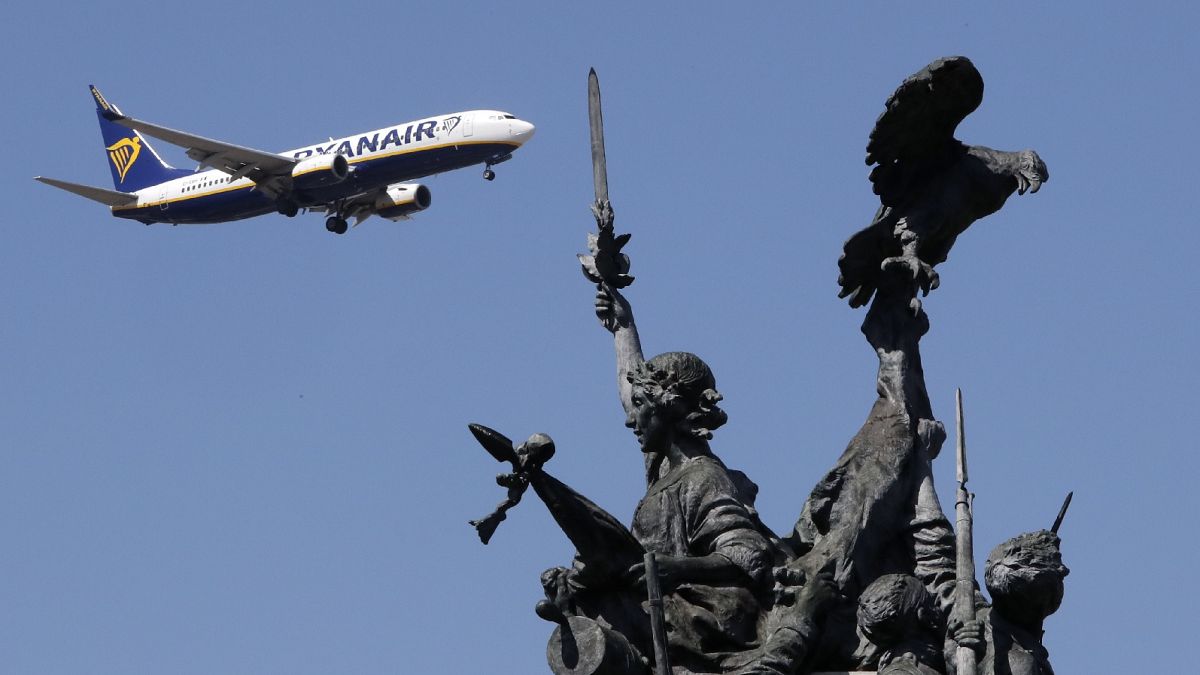Under ReFuelEU Aviation, the sector will have to progressively blend more sustainable aviation fuels (SAF) with kerosene.
Airlines and airports will soon be forced to use more sustainable fuels for flights.
Under ReFuelEU Aviation, the sector will have to progressively blend more sustainable aviation fuels (SAF) with kerosene.
Adina Vălean, European Commissioner for Transport, welcomed the agreement as "a turning point for European aviation, putting it on a solid pathway towards decarbonisation."
Slashing emissions from transport is crucial because it is the second-largest emitting sector in the 27-country bloc, accounting for over a quarter of all emissions.
Aviation makes up over 13% of all transport emissions, second only to road transport. Its emissions grew by 5% year-on-year between 2013 and 2019 before the COVID pandemic ground the sector to a halt.
What fuels will be mandatory under ReFuelEU Aviation?
By 2025, SAF should account for 2% of fuel supplied at EU airports. By 2050 this will increase to 70%.
Additionally, the new EU jet fuel blend will need to contain a minimum share of the most modern and environmentally-friendly synthetic fuels, which increases over time.
There are many benefits to environmentally friendly fuels. They are projected to slash aircraft CO2 emissions by around two-thirds by 2050 compared to a "no-action" scenario, according to the European Commission.
Vălean says, "Shifting to sustainable aviation fuels will improve our energy security, while reducing reliance on fossil fuel imports. These kinds of measures help make Europe a front-runner in the production of innovative clean fuels, globally. We estimate that the SAF market will create more than 200,000 additional jobs in the EU, mainly in the renewables sector."
What are the new rules for airports?
Airports will also be affected by the deal, which was struck by negotiators from the European Parliament and the European Council earlier this week.
Airports within the EU will have to ensure their fuelling infrastructure is available and fit for SAF distribution.
Aircraft operators departing from EU airports will only be allowed to refuel when necessary for the flight and not over-fuel in order to avoid refuelling with SAF. This practice, known as 'tankering' can lead to more emissions per flight because of the extra weight or carbon leakage.
What are the new rules for airlines?
An EU label for the environmental performance of flights will be rolled out in 2025. This means airlines will have to indicate the expected carbon footprint per passenger and the expected CO2 efficiency per kilometre of their flights. This is intended to help passengers compare how different companies perform on the same route.
How will the rules be enforced?
If airlines, airports or fuel suppliers do not comply with the new rules, they will be fined. This money will then go towards research and innovation into bridging the price difference between sustainable and conventional fuels.
The agreement, which now needs to be formally endorsed by MEPs and member states, is part of the Fit for 55 regulation that aims to reduce EU emissions by at least 55% by 2030 and for the bloc to become carbon-neutral by mid-century.
Watch the video to see more about ReFuelEU Aviation.
